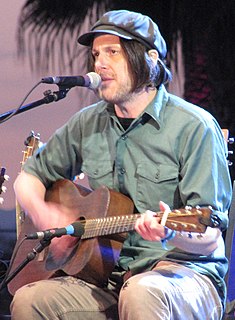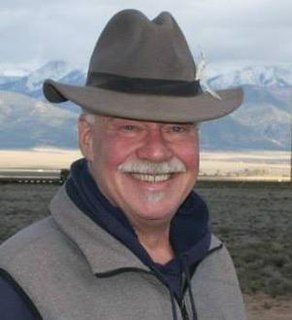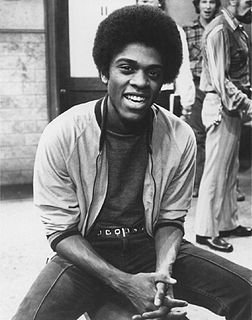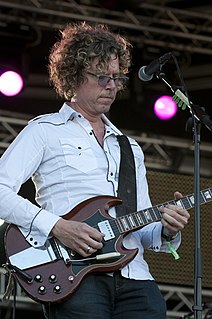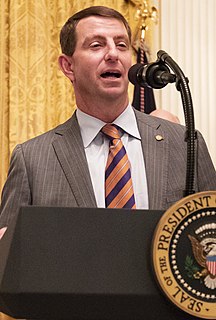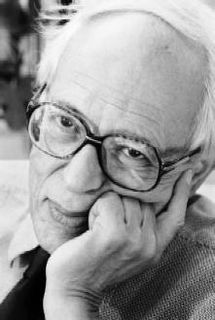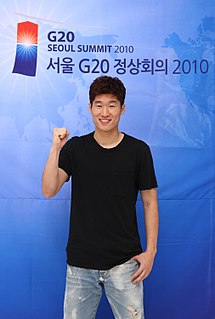A Quote by Jeff Mangum
The songs sort of come out spontaneously and it'll take me awhile to figure out what exactly is happening lyrically, what kind of story I'm telling. Then I start building little bridges - word bridges - to make everything go from one point to the next point to the next point until it reaches the end.
Related Quotes
The Electoral College said that [Donald Trump] is the president, he's the president.But as a president, you also have to build. And if I'm sitting there and part of his team and I go look, we're probably not going to win the next election with 46 percent of the vote, so people like John Lewis and all these other groups, you have to start building bridges toward, this week was a disaster because he is burning bridges, not building them.
If the point of life is the same as the point of a story, the point of life is character transformation. If I got any comfort as I set out on my first story, it was that in nearly every story, the protagonist is transformed. He's a jerk at the beginning and nice at the end, or a coward at the beginning and brave at the end. If the character doesn't change, the story hasn't happened yet. And if story is derived from real life, if story is just condensed version of life then life itself may be designed to change us so that we evolve from one kind of person to another.
Bridges are burning all around us; bridges to responses that might have mitigated the already brutal (and just beginning) ravages of Peak Oil; bridges to reduce the likelihood of war and famine; bridges to avoid our selectively chosen suicide; bridges to change at least a part of energy infrastructure and consumption; bridges to becoming something better than we are or have been; bridges to non-violence. Those bridges are effectively gone.
I have to tell it again and again: I have no doctrine. I only point out something. I point out reality, I point out something in reality which has not or too little been seen. I take him who listens to me at his hand and lead him to the window. I push open the window and point outside. I have no doctrine, I carry on a dialogue.
It's like you run into this dark tunnel, trusting that somewhere there's another end to it where you're going to come out. And there's a point in the middle where it's just dark. There's no light from where you came in and there's no light at the other end; all you can do is keep running. And then you start to see a little light, and a little more light, and then, bam! You're out in the sun.
If I try to figure out what people want and give it to them, it's a failure. If I try to please people and figure out what's going to get me from point A to point B, I fail. But I think if I do what I want to do, in the long run, maybe not tomorrow, but at some point, I think it'll pay off and it'll at least feel honest.
You sit and you let your fingers go to wherever they are going to go. You wait until you start to hear something, and you start to figure out what it is that you're doing. And then you add another piece next to that piece, and wait to see if some kind of pattern or something interesting starts to grow, and then you cultivate it.
In Korea, if a player makes a mistake, the other players don't like to point it out. Rather, they try to embrace it; they take the attitude, 'Let's do better next time.' But in the West, if you do something wrong, another player will make a point of saying something, and you will have to fix it immediately.
I prefer to surprise myself as I'm writing. I'm not interested in it if I already know where it's going. So I have only the most general sense of what I'm doing when I start a story. I sometimes have a destination in mind, but how the story is going to go from Point A to Point Z is something I make up as I go along.
